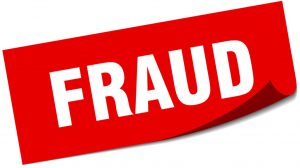
St. Petersburg Federal Criminal Lawyer
Certain crimes may be prosecuted in federal court. Generally, these are violent crimes or crimes that involve activities that cross state lines. When you are accused of a crime, the state or federal government prosecutes you, not the victim. For federal crimes, the United States Attorney’s Office prosecutes you. At the state level, it’s the State’s Attorney’s Office. In St. Petersburg, a federal criminal case is heard in the Middle District of Florida federal court, which is in downtown Tampa.
If you are convicted of a federal crime, the punishment is usually harsher than punishment for the same crime at the state level. Punishment may include prison time, a fine, probation, or some combination of these punishments.
Types of Federal Crimes
Fraud
The prosecution can secure a conviction if it can prove a defendant obtained valuable items or money through misrepresentation, false promises, not disclosing material information, or other fraudulent pretenses. The following activities may lead to prosecution for this crime:

- Bank fraud
- Medicare, Tricare and Medicaid fraud;
- Private health insurance fraud;
- Mail fraud;
- Telemarketing fraud;
- E-mail marketing fraud;
- Vehicle, homeowners’, and business insurance fraud;
- Mortgage fraud;
- Wire fraud; and
- Securities fraud.
White Collar Crimes
Financial crimes and some other types of federal crimes are considered white collar crimes. White collar crimes include:
- Public corruption;
- Bribery;
- Money laundering;
- Stealing government property;
- Tax evasion;
- Drug crimes;
- Conspiracy;
- Terrorist acts; and
- Intellectual property theft.
Other Federal Crimes
Other federal crimes that are neither fraud nor white collar crimes include:
- Arson;
- Assault;
- Assassinating, assaulting, or kidnapping a president, cabinet member, supreme court personnel, or members of Congress;
- Street gang crimes;
- Embezzlement and theft;
- Espionage;
- Importing, manufacturing, and distributing explosive materials;
- Extortion;
- False impersonation;
- Gambling;
- Genocide and homicide;
- Kidnapping;
- Trafficking liquor;
- Nationality and citizenship crimes;
- Obstruction of justice;
- Trafficking in persons, slavery, and peonage;
- Racketeering;
- Rioting;
- Sabotage;
- Some forms of sexual abuse and other sex offender crimes;
- Some forms of domestic violence and stalking;
- Interference with or the destruction of marine vessels and/or maritime facilities;
- Terrorism;
- Torture; and
- War crimes.
Punishment
The punishment when someone is convicted of a federal crime is generally harsher than if they are convicted of the same crime in state court. For example, federal prison sentences are often longer, and opportunities for parol are fewer. And although some states do not impose capital punishment (Florida is not one of them), the federal government can impose it for certain crimes. Thus, even if the defendant lives in a state that outlaws capital punishment, they can still receive the death penalty if they are convicted of a crime in federal court.
What to Do if You Are Arrested by a Federal Agency
In some cases, a defendant may be arrested by state authorities but tried in the federal court. But in most cases, a federal agency will investigate the defendant and make the arrest, whether the arrest is by the agency’s own officers or the agency enlists the help of local police.
Most of the time the federal government does a very thorough investigation before an arrest and has a lot of evidence against anyone who is charged with a federal crime.
- Cooperate but do not say anything. If you are arrested for a federal crime, give your name and contact information, and ask to call your attorney. Never resist arrest—doing this just results in more charges against you and could work against you at your arraignment. In most cases, arraignment is set for the next day—usually the next business day, but sometimes authorities hold arraignments on Saturdays. Retain a federal criminal lawyer before your arraignment.
- Even if you are not guilty, never give the police or arresting agency any information other than your name without first speaking to a federal criminal attorney. You could inadvertently say something that gives the arresting agency probable cause to hold you. Let your attorney do the talking. Even if you have information you believe will help exonerate you, speak to your attorney before you give the arresting agency any information.
What Happens After an Arrest
Once you are arrested, you will be taken to a holding cell. If a bond was assigned, you will need to call your attorney and a bondsman to post bond. In fact, call your attorney even if you can post bond.
The next step is the arraignment. You appear in front of a judge to enter a plea. Your attorney will also attempt to lower the bond. If the judge denies you bond altogether, your attorney may attempt to argue for bond on your behalf. Depending on the circumstances, your attorney may also try to get you released on your own recognizance, without needing to pay bond at all. If you can post bond or the court releases you on your own recognizance, you will be free to leave. The court may schedule your next hearing—and do not miss that hearing.
If you cannot post bond or are otherwise not released, stay in touch with your attorney to work on your case. Your attorney will request all evidence the state or federal government has against you. If you are later convicted and receive prison time as part of your sentence, the judge might subtract from your sentence the time you spend in jail waiting for trial.
Contact Our Federal Criminal Defense Attorneys Now
If you were arrested on federal criminal charges, contact the Khonsari Law Group at (727) 269-5300 as soon as you can. If you choose to work with us, we will discuss your case with you so that we may present the proper plea and applicable requests at your arraignment and we will help ensure the government does not violate your rights.
